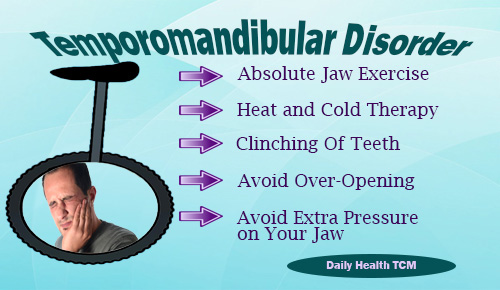How emerging symptoms of Temporomandibular Joint Syndrome (TMJ)? Symptoms that arise include :
Pain in Temporomandibular Junction or the surrounding area initially the pain of the ear, can spread to the cheek, ear or the temple. Jaw become stiff and difficult to move or movement is reduced. This make the patient becomes difficult to open or close his mouth comes the sound of a “click” or rattling when opening the mouth or moving the jaw.
Sometimes it can also arised ear disorder because it is adjacent. For example the ears become sensitive to sound, often heard voices and noisy in the ears, or ringing in the ears (tinnitus). Other symptoms : dizziness / headache, neck pain, shoulder pain, toothache
Cause of Temporomandibular Joint Disorder (TMJ)?
- Moving or gritten teeth too strong pressure on Temporomandibular Junction
- Activity or movement is too much on the jaw muscles
- Open mouth too wide when yawning
- Injury or trauma to the Temporomandibular Junction
How to treat Temporomandibular Disorder (TMD)?
- Rest the jaw that is by not too much chewing, eating soft foods, do not open mouth too wide and so forth
- The consumption of drugs. Suppose the consumption of paracetamol, ibuprofen or other anti-pain to reduce the pain
- Physical therapy. Treatments might include ultrasound, moist heat and ice – along with exercise to stretch and strengthen jaw muscles
- Injections. In some people, corticosteroid injections into the joint may be helpful
- Acupuncture. A specialist trained in acupuncture treats chronic pain by inserting hair-thin needles at specific locations on your body

